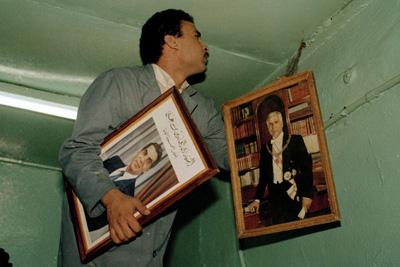Kamel Labidi/CPJ Middle East Representative
Kamel Labidi is a freelance journalist and former CPJ representative and consultant for the Middle East and North Africa region. Labidi returned from exile to Tunisia in 2011 to head the National Commission to Reform Information and Communication. He resigned in 2012 to protest the lack of political will of the Islamist-led government to implement the commission’s recommendations.

Morocco declares itself ‘democratic’ while restricting media
While high-ranking Arab officials are not held accountable for misinforming or misleading the public, critical journalists in their respective countries are increasingly dragged into courts and handed harsh jail sentences following unfair trials for “spreading false news.”
Tunisian airport officials confiscate CPJ publications
On Saturday, Tunis airport customs officials confiscated two copies of CPJ’s annual report, Attacks on the Press, as well as five copies of the Arabic-language translation of the Middle East and North Africa section of the book from Tunisian rights lawyer Mohamed Abbou and journalist Lotfi Hidouri on their return from Morocco, the two men told CPJ.
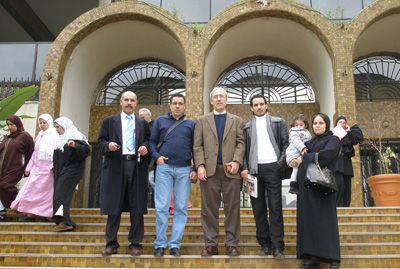
CPJ trip to Morocco reveals gap between rhetoric and reality
Two weeks ago, Mohamed Abdel Dayem, CPJ’s Middle East and North Africa Program Coordinator, and I were in Morocco to hold meetings with government officials as well as journalists. In some ways the trip was a success, but in other ways it left much to be desired from a country that claims to be “at the forefront of…
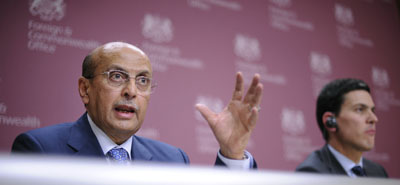
Saleh uses security as cover to quash press freedom
Ministers and officials representing some 20 Western and Arab governments and international financial institutions declared themselves “friends of Yemen” during last week’s closed-door meeting in London to address threats posed by Al-Qaeda in Yemen, according to news reports. Participants, including U.S. Secretary of State Hillary Rodham Clinton, offered assurances that the international community, in addition…
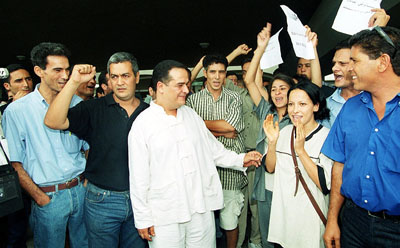
Ben Brik, still jailed in Tunisia: ‘Chains will certainly break!’
“When people want to live, destiny must surely respond. Darknesss will disappear, chains will certainly break!”Journalist Taoufik Ben Brik, 49, spurred admiration among his relatives and lawyers at a Tunis appeals court on Saturday when he chanted these two verses by Abou El Kacem Chebbi, Tunisia’s most well-known poet. This unexpected recitation of Chebbi’s verses,…
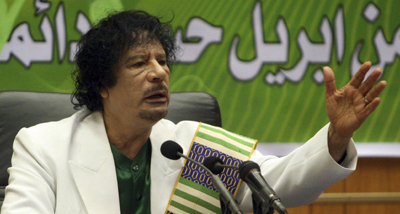
Anniversary a reminder of Qaddafi’s media repression
As Col. Muammar Qaddafi, 67, celebrates the 40th anniversary of his ascent to power this week, it is unlikely that any of the numerous international guests will venture to ask the Libyan dictator or his aides what happened to journalist Abdullah Ali al-Sanussi al-Darrat after his arbitrary arrest 36 years ago. Al-Darrat, a journalist and…
After advocacy, Tunisian sees end of cruel punishment
The government’s cruel treatment of Tunisian journalist Abdallah Zouari came to an end on August 1, a reminder that even the most autocratic regimes will yield to international pressure for press freedom. Zouari, a former reporter for the now-defunct Islamic weekly Al-Fajr, had been forced to live under a form of house arrest since his…
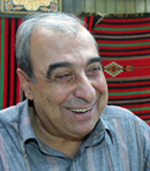
Q&A: Syrian journalist Michel Kilo after prison
On May 18, Syrian journalist and pro-democracy activist Michel Kilo was released from prison after serving a three-year sentence for “weakening national sentiment and encouraging sectarian strife.” Kilo, who was a regular contributor to the leading Lebanese daily, Al-Nahar, and the London-based daily Al-Quds Al-Arabi among other publications, was detained in May 2006 after writing…

Executions in editor’s murder trigger doubts, outrage
Sudan’s execution this week of nine men found guilty of involvement in the 2006 assassination of editor Mohammed Taha Mohammed Ahmed, left, is seen by many there as an outrageous miscarriage of justice, spurred by a thirst on the part of President Omar al-Bashir’s regime for settling scores with the rebellious region of Darfur.
